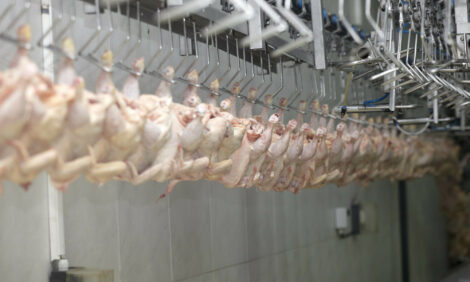



BSAS: Could Wine Industry Waste Be Used in Broiler Feed?
GLOBAL – Waste products from the food industry represent growing challenges as consumer consciousness develops about the environmental, social and political context of meat production, reports editor, Michael Priestley, from a British Society of Animal Science (BSAS) conference.This was the remit of a study presented by Eleni Kasapidou at the BSAS Annual Conference at Nottingham University in the UK on Wednesday 17 April.
The investigation looked at utilising ground and dried grape pomace on the sensory characteristics of broiler meat during refrigerated storage.
Although used as a fertiliser on some vineyards, grape pomace is generally seen as waste. Mrs Kasapidou and her team are keen to see what can be done to utilise this product which essentially the grape seed, skins and stems in animal nutrition.
“Grape pomace is common in Greece and other wine producing areas,” said Mrs Kasapidou. “Globally, we produce around 10 million tons annually which raises utilisation questions. Surely we must do something with it, not just dump it like many wine producers currently do.”
The antioxidant activity of wine by-products in muscle foods has been reported in various studies. If lipid oxidation can be reduced then meat quality deterioration can also be limited, she added.
The extent of lipid oxidation reduction depends upon how readily the polyphenols in the grape product are absorbed. This, she stressed will dictate the scope for inclusion of grape waste in animal feeds as polyphenols have low digestibility.
This tentativeness was mirrored in her overall results with their being little change in breast and thigh muscle colour from broilers fed grape pomace.
“The method of our experiment involved taking 308 Ross broiler chickens, all 320 days old and randomly allocated them to four feed treatments,” said Mrs Kasapidou. “Birds were fed on a standard commercial diet containing either 0, 2.5, 5.0 or 10.0g per kg of ground and dried grape pomace supplement.”
Mrs Kasapidou stated that the results aligned with previous research, further reducing the reputation of grape pomace as a broiler additive.
She added that while previous experiments has noted delayed lipid oxidation in breast and thigh meat seven days into storage, there was limited application for this in Greece, where a five-day refrigeration period is required.











